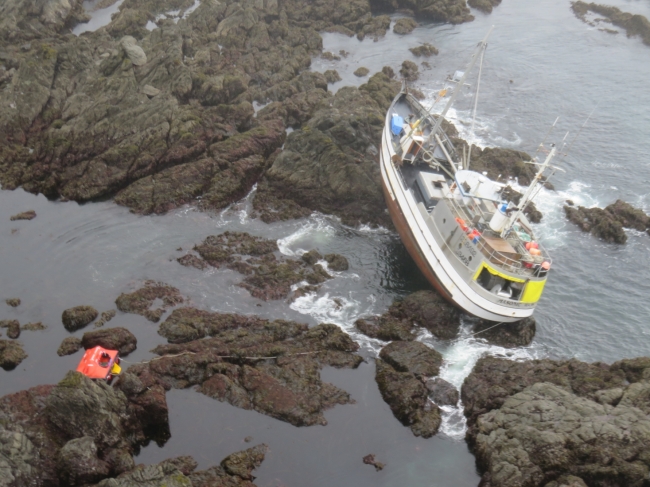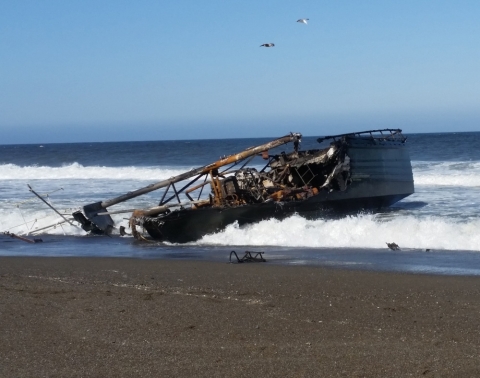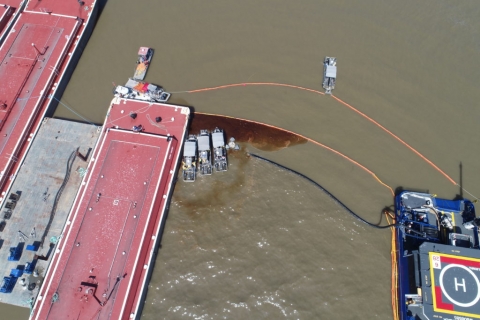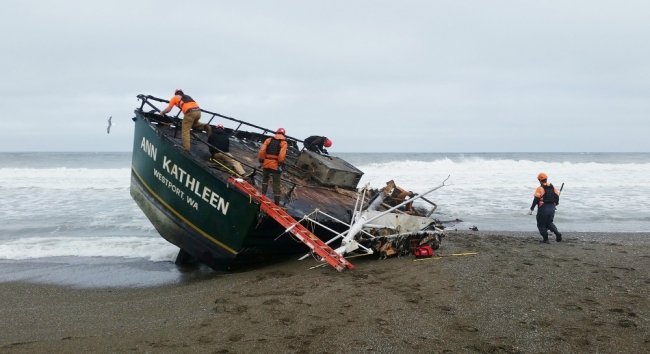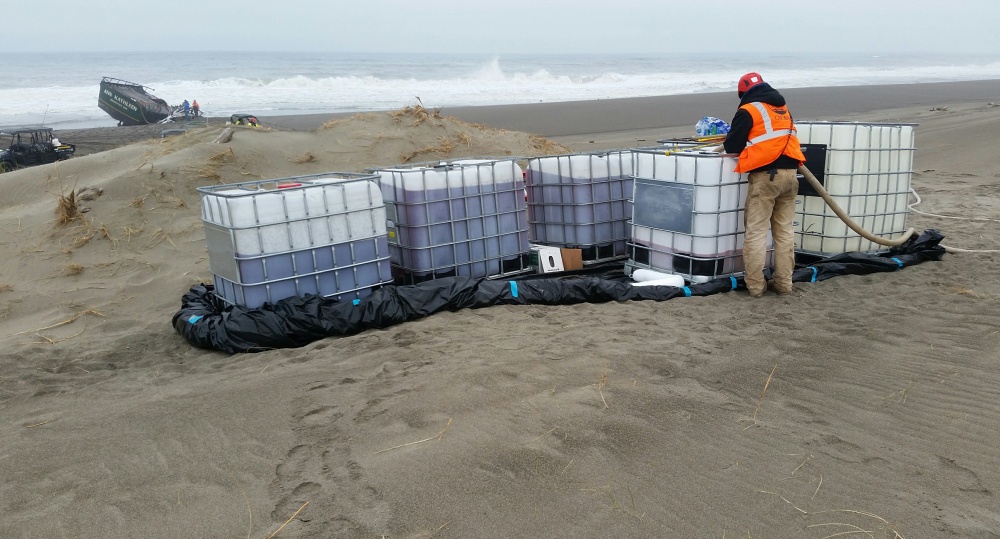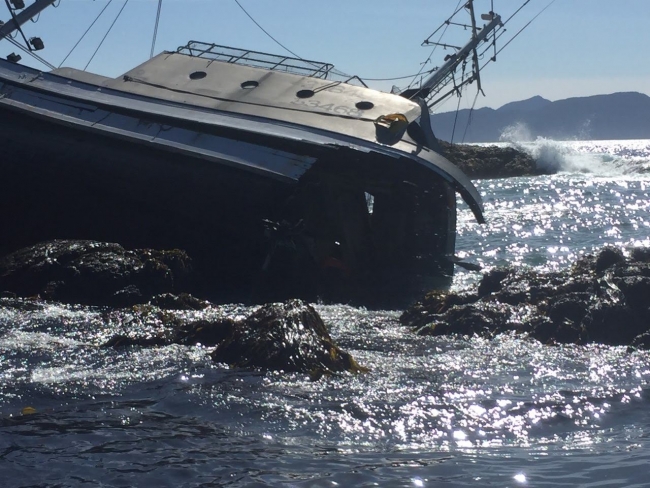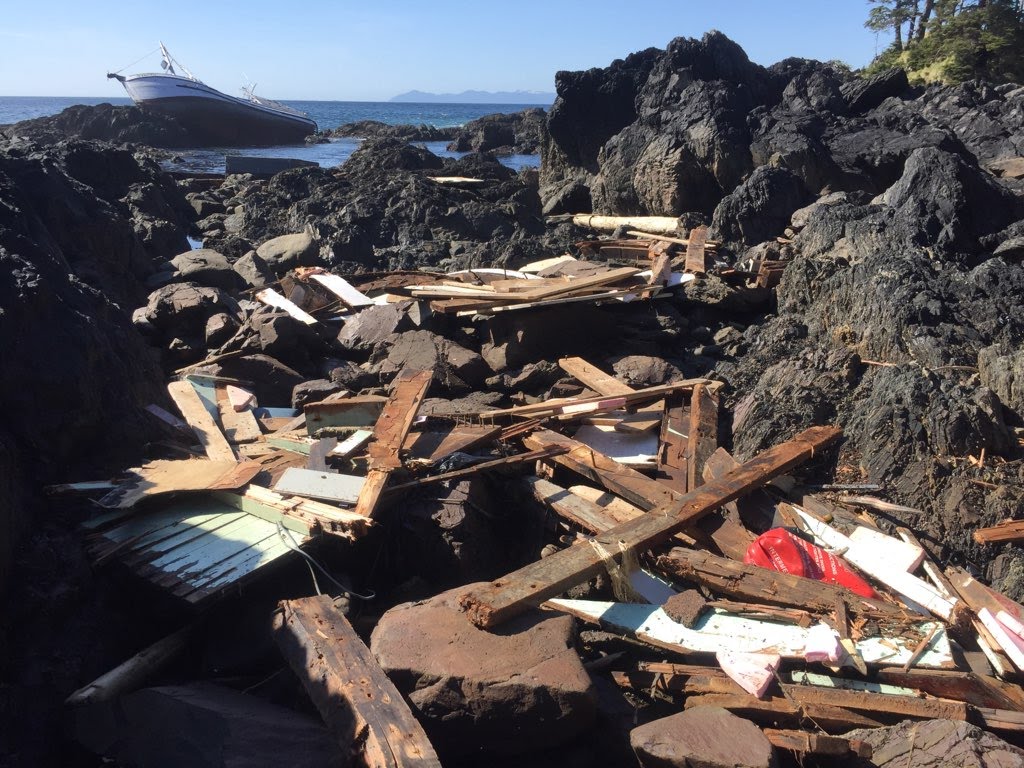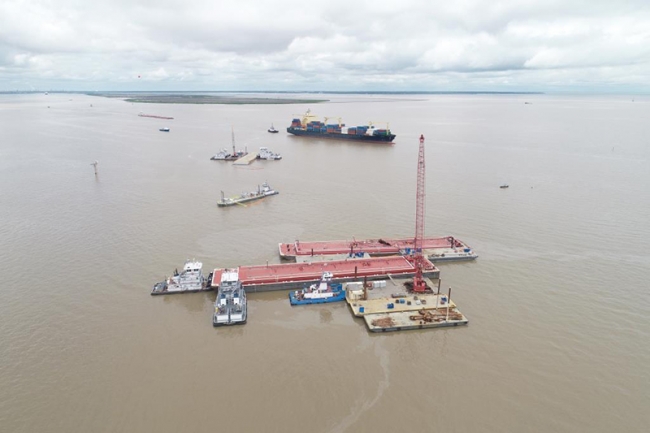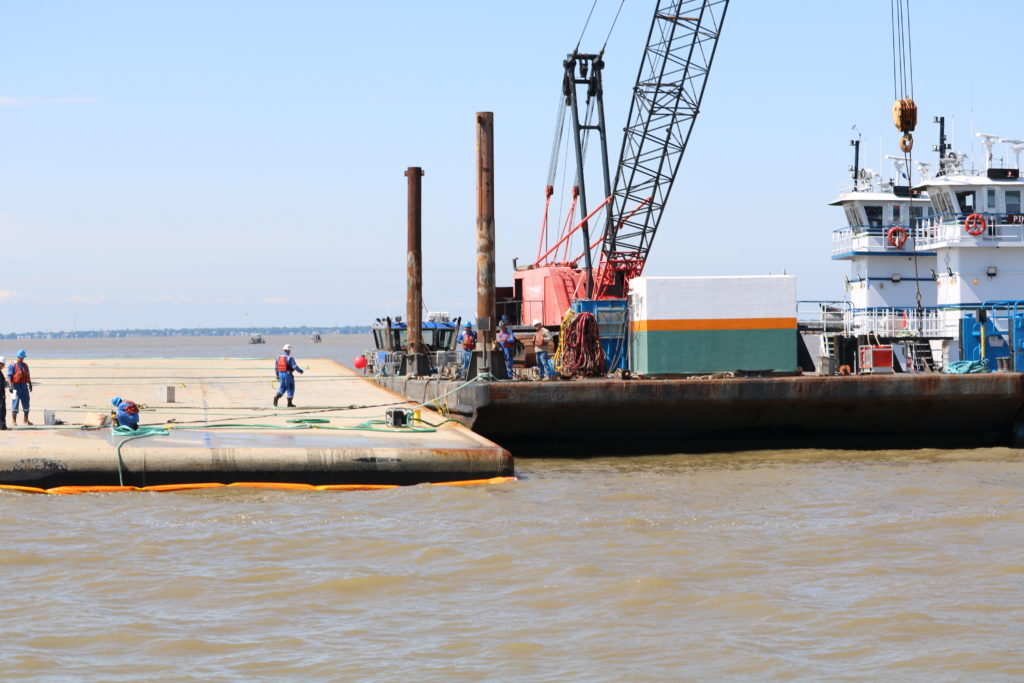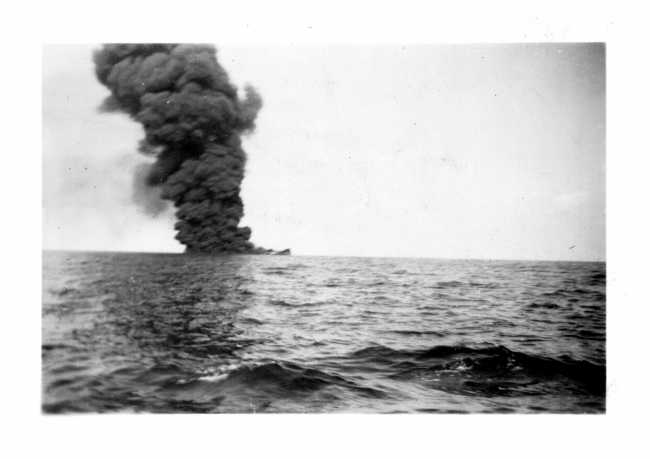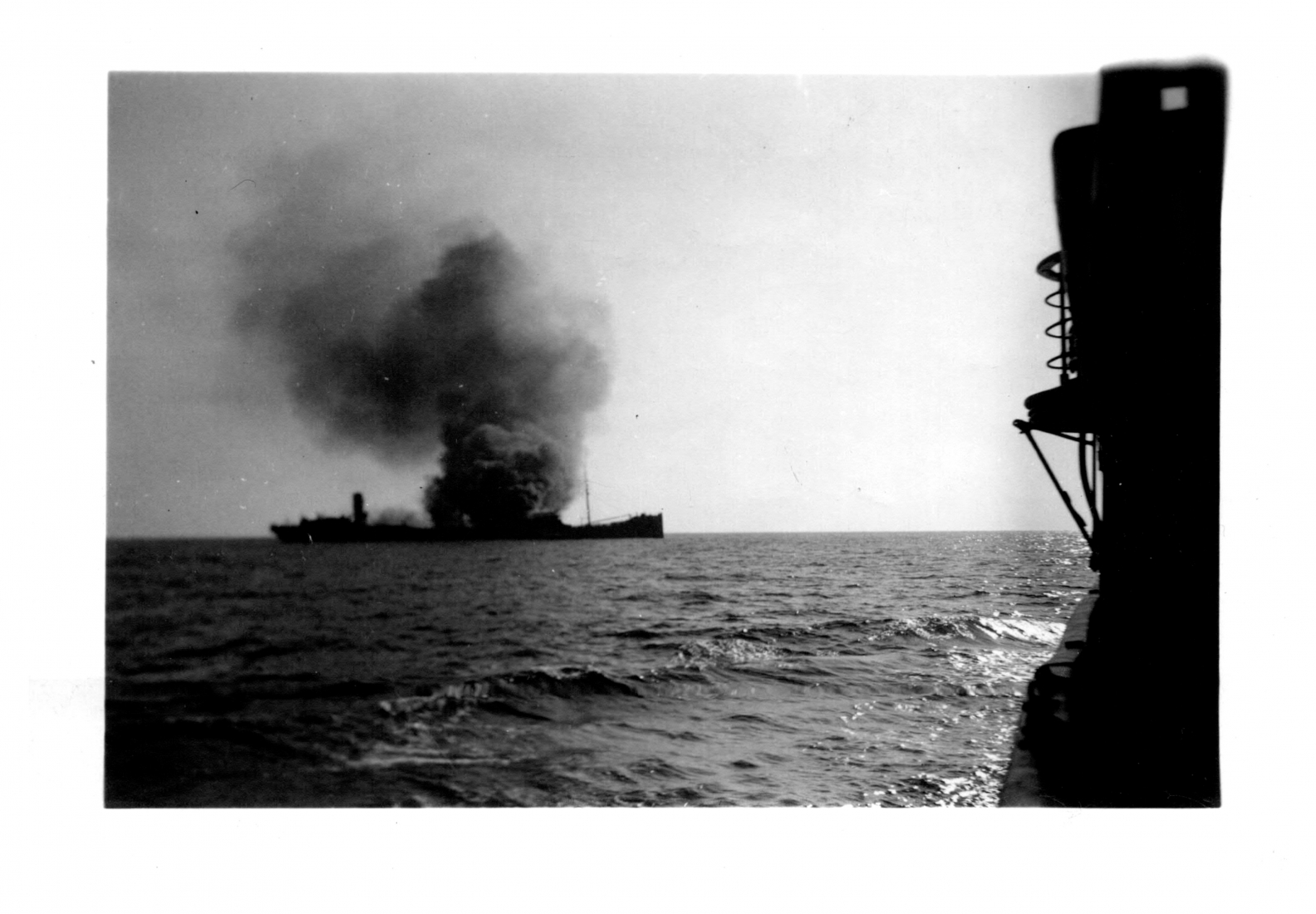Every month our Emergency Response Division provides scientific expertise and services to the U.S. Coast Guard on everything from running oil spill trajectories to model where the spill may spread, to possible effects on wildlife and fisheries and estimates on how long the oil may stay in the environment.
This month OR&R responded to 15 incidents, including oil discharges, sunken vessels, and three gray whale carcasses.
Here are some of May’s notable incidents:
Vessel Caught Fire, Grounded Near Bandon, Oregon
On May 2, the U.S. Coast Guard responded to a commercial fishing vessel that was on fire and aground about 9 nautical miles south of Coquille River Bar near Bandon, Oregon.
The F/V Ann Kathleen was carrying an estimated 2,000 gallons of diesel at the time of the incident. No oil discharge was observed or reported. As of Friday, May 3, the fire was out but the vessel was reported to be severely damaged. Contractors pumped 1,080 gallons of diesel and 300 gallons of oily water from the vessel. Oregon Parks and Recreation Department will be handling wreck removal and debris recovery.
Fishing Vessel Grounded in Alaska
On May 7, a fishing vessel grounded on the Spanish Islands around Cape Decision in Southeast Alaska. The U.S. Coast Guard requested OR&R do an analysis of the oil fate and trajectory, and provide a report on the resources at risk in the area.
The F/V Masonic, a wooden hulled fishing vessel, had a reported 2,000 gallons of diesel and 150 gallons of lube oils onboard at the time of the grounding. No discharge was reported or observed at the time.
The vessel began breaking up, making lightering operations a challenge and causing debris to appear along the shoreline.
OR&R Responds to Ship and Barge Collision in Houston Ship Canal
On May 10, the U.S. Coast Guard notified OR&R of a vessel collision near Houston that occurred around 3:20 p.m. A 755-foot tanker, M/V Genesis River, and the tug Voyager collided in the Houston Ship Channel near Bayport, Texas.
The Genesis River took on water but did not spill any fuel or cargo. One of the barges capsized, and another barge was damaged and released a gasoline blending stock into the channel and Galveston Bay.
There were no reports of any injuries to the crew members. The cause of the collision is under investigation.
For the most recent incident information, visit the Unified Command website.
WWII Tanker Identified as a Potential Pollution Threat
On May 21, a hotline was opened for a previously identified, potentially polluting shipwreck — moving the wreck into an active incident status. NOAA identified a World War II tanker as a potential pollution threat several years ago under the Response to Undersea Legacy Environmental Threats (RULET) project.
On May 7, 1942, the tanker USS Joseph M. Cudahy, was torpedoed and sunk during World War II northwest of Key West, Florida. In recent months, satellite observations of oil in the vicinity of the tanker have promoted a closer look. The U.S. Coast Guard has requested NOAA review the trajectory analyses and resources at risk information contained in the original RULET report for the vessel to support response planning for the wreck.
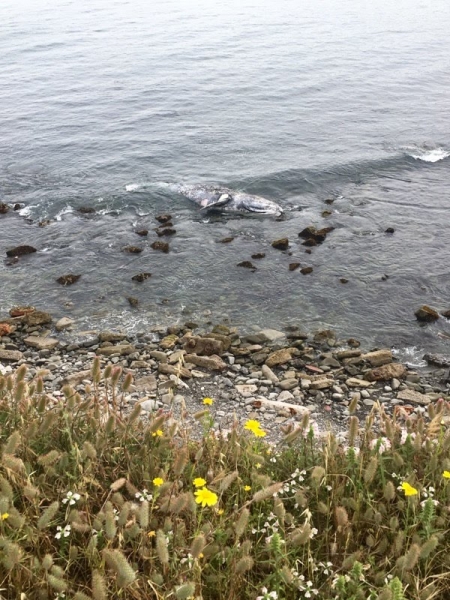
Here is the complete list of last month’s incidents, click on the links to find out more:
- FV Ann Kathleen
- ITV Cindy R
- FV Masonic Grounding
- Gray whale carcass
- Sunken Crane Barge - Offshore Freeport
- Smith Island Grounding, near Smith Island, WA
- Bayport Channel Collision, Houston Ship Canal near Bayport, TX
- Gray whale carcass
- Gray whale carcass
- Sulfur dioxide release
- Chlorine Plant Fire, Kearny, NJ
- JOSEPH M. CUDAHY (RULET)
- Diammonium Phosphate Barges
- Bowley Cap Crude Oil Spill
- Ellwood Beach spill

